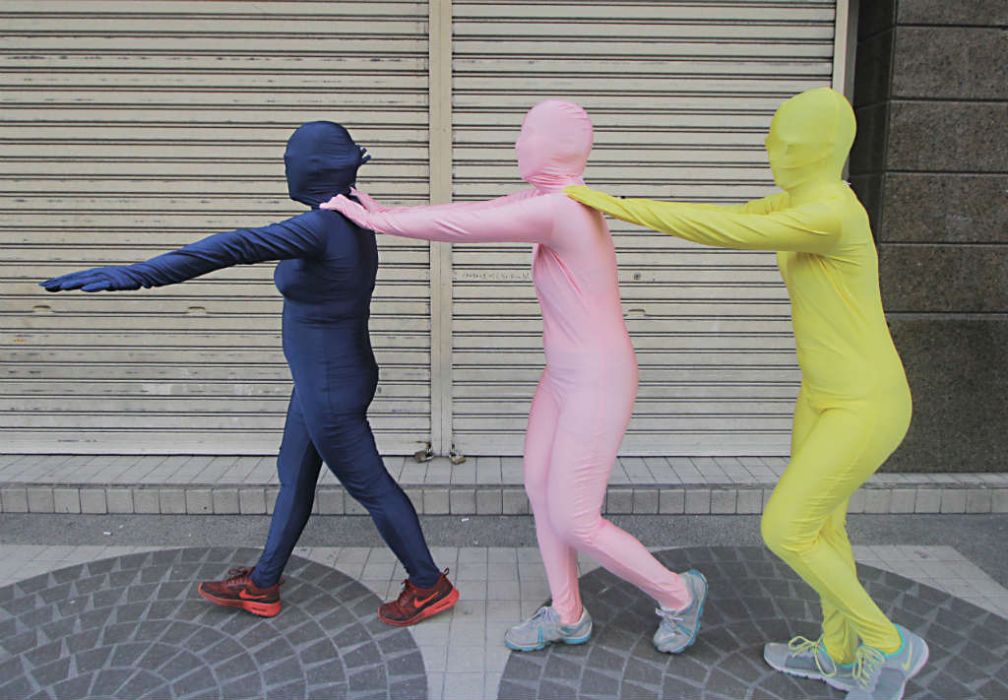Walking around in a bodysuit sounded like fun, a chance to live my ultimate fantasy as a superhero, villain or even a supermodel in a catsuit. So I answered Japanese artist Yuzuru Maeda’s call for participants to the Zentai Walk on Feb 13. “Zentai is short for zenshin taitsu,” Yuzuru said as she distributed the colorful suits from which the project took its name. “It means body tight, and they were made by Japanese men in the 1980s. The idea came from superheroes.”
There were about 20 other participants gathered at 98B Collaboratory’s office, the artist-run space in Manila that organized the event. I asked Yuzuru how the project came about, and she said she thought that it would be fun for both participants and viewers to “paint” the streets with color, an experience she “wanted to share with people who are not usually in the art scene.”
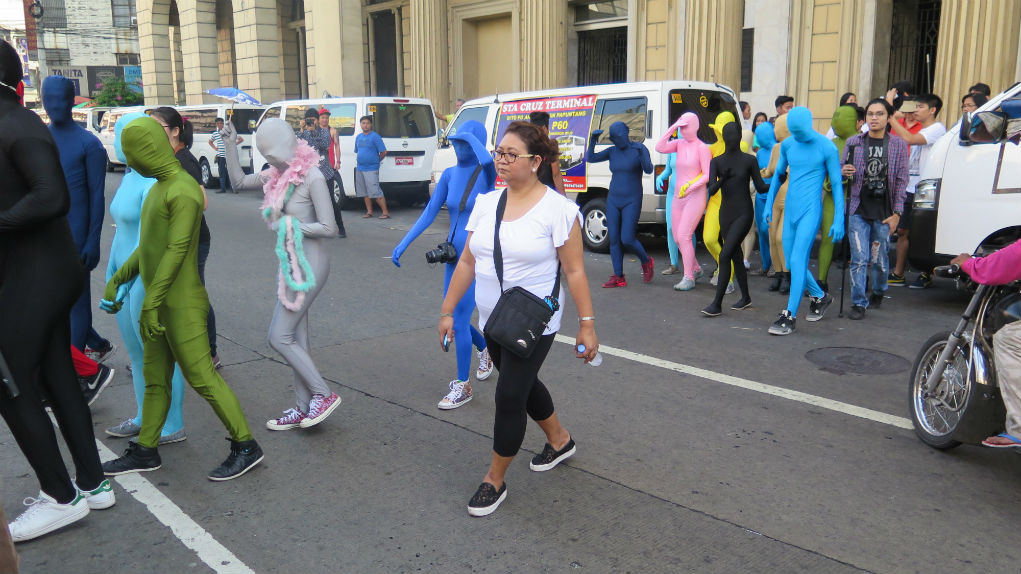
Zentai Walk, she said, was about “questioning identities, individuality and spirituality.” People pile on identities in the course of their lives, but wearing the suit can perhaps shed the accumulated personas layer by layer through the course of the one-hour walk.
Our guide, a girl with a pink banner and a megaphone, soon announced that it was time to take a stroll. Yuzuru helped zip up my shiny black bodysuit, and my world turned into a sea of hazy forms and desaturated colors as soon as the fabric covered by eyes. I thought that if I saw less of everything, then everybody would probably see less of me as well, and there was this sense of anonymity. To stand among my new-found “anonymous” brethren also felt strange, and wonderful.
“The participants don’t see each others’ faces, so you kind of become friends without introducing ‘I am doing this job, or I study in this school’ — we don’t need these introductions to be friends,” the artist said. By the time we hit the streets, I had forgotten about my superhero (or model) fantasies. “They (the participants) walk on a street that they know, but the reaction of the people (the bystanders) was different because of the suit,” said Yuzuru, “and the experience of ‘same place, but different experience’ is interesting.”
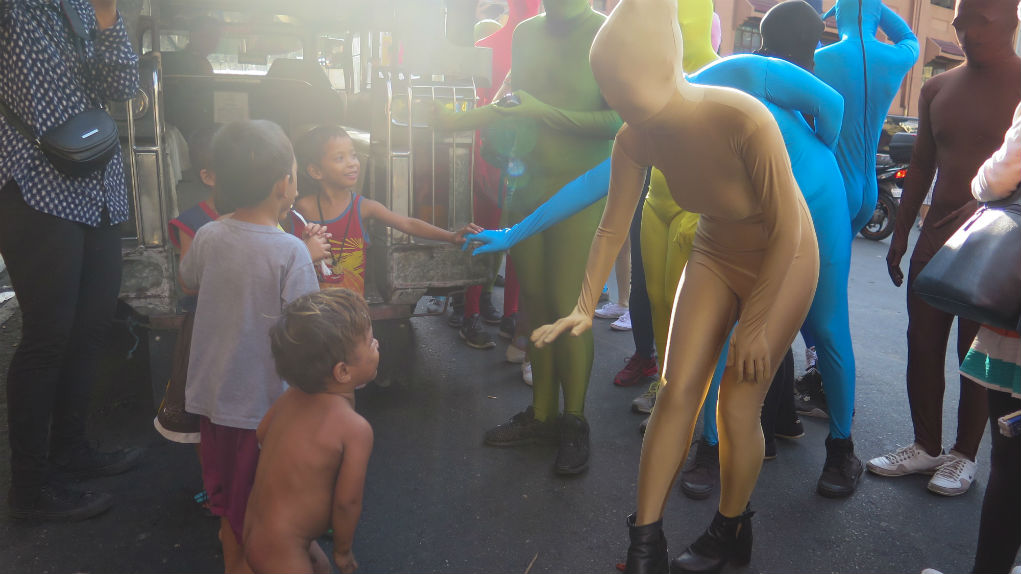
I’ve strolled through Escolta many times, but never in a black bodysuit accompanied by a spandex-clad squad. The place’s denizens were in the midst of their daily grind when we took a stroll. Adults kept their distance and simply stared, with some perhaps annoyed by the invasion of the spandex platoon. But the children were certainly amused, most of whom approached us to ask for high fives, shake our hands, engage in easy banter or simply romp along with us.
Devoid of my real self and prejudices, the street kids amused me with their own perceptions of the figures who’ve descended on their neighborhood, some shouted “Power Rangers,” others screamed “mumu.” Clichéd as it may sound, the experience was liberating. The anonymity emboldened us to engage with strangers and to explore our “playground” with childlike wonder. I was having a lot of fun in my new skin when the guide announced that it was time to head back.
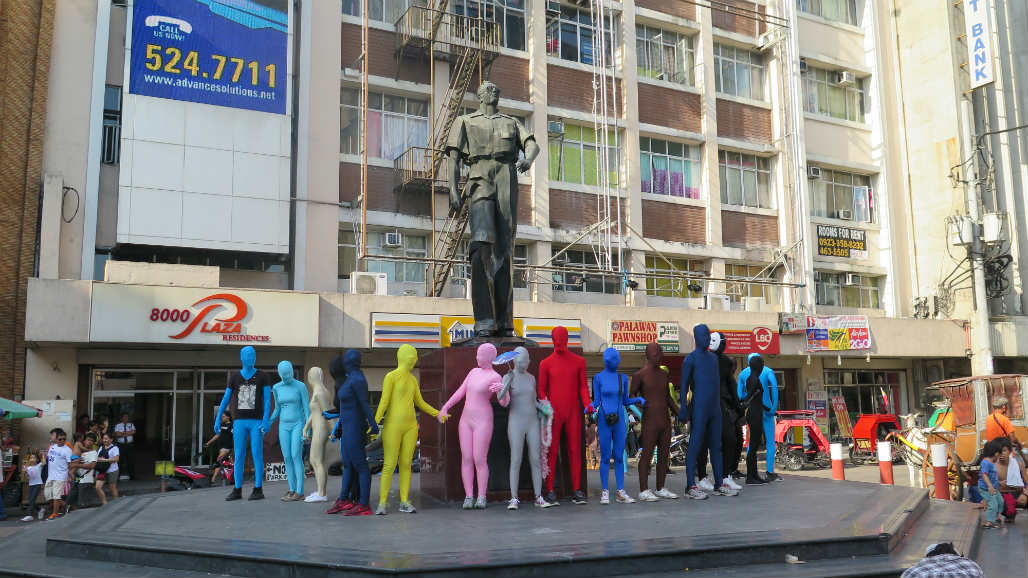
Upon Yuzuru’s prodding, we piled into a jeepney for one last photo-opportunity. After a couple of shots, the driver informed us that he needed to fill the jeepney with paying passengers, a cue for us to leave. I would have ordinarily dismissed the statement as a sly attempt at extortion, but my suit apparently shed off my cynism. I remember dutifully exiting the jeepney, thinking that it was only fair, “trabaho lang po,” as the driver said, for us to leave the space that earned the man his income.
I had one last go as a faceless being and asked a Burger Machine vendor for a roast beef sandwich. “Naubusan na kami,” she replied without batting an eyelash. Then and there I realized that Escolta was getting used to its visiting aliens as well. Yuzuru was right when she said that “the Zentai Walk is a beautiful experience.” It revealed many things to me: Escolta’s alter-ego, the soul trapped beneath layers of my own accumulated identities, and life’s bigger truths.
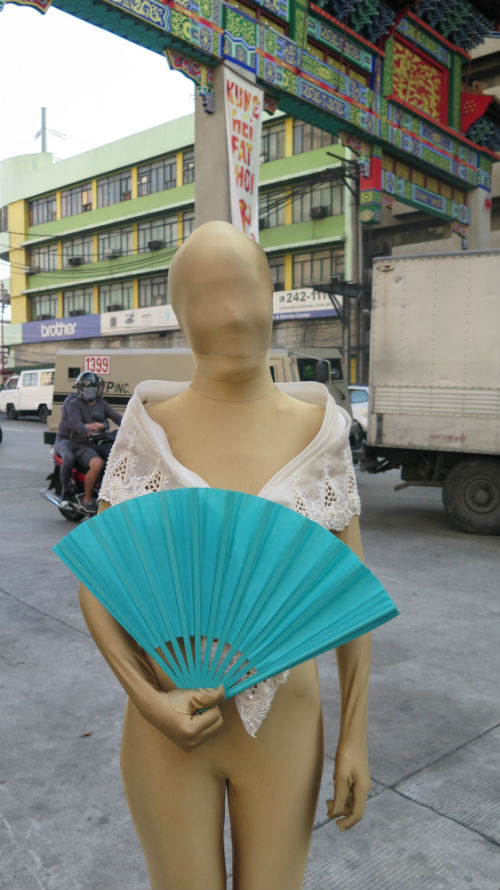
In her Zentai Art Project website, Yuzuru seems to have figured things out. “People say the world would not last long if we continue to consume the way we do now. But I think we are not looking for a new invention that can save the world. I believe the key is to have less desires or identities. If we could live simple, there’s much less things we require materially.”
